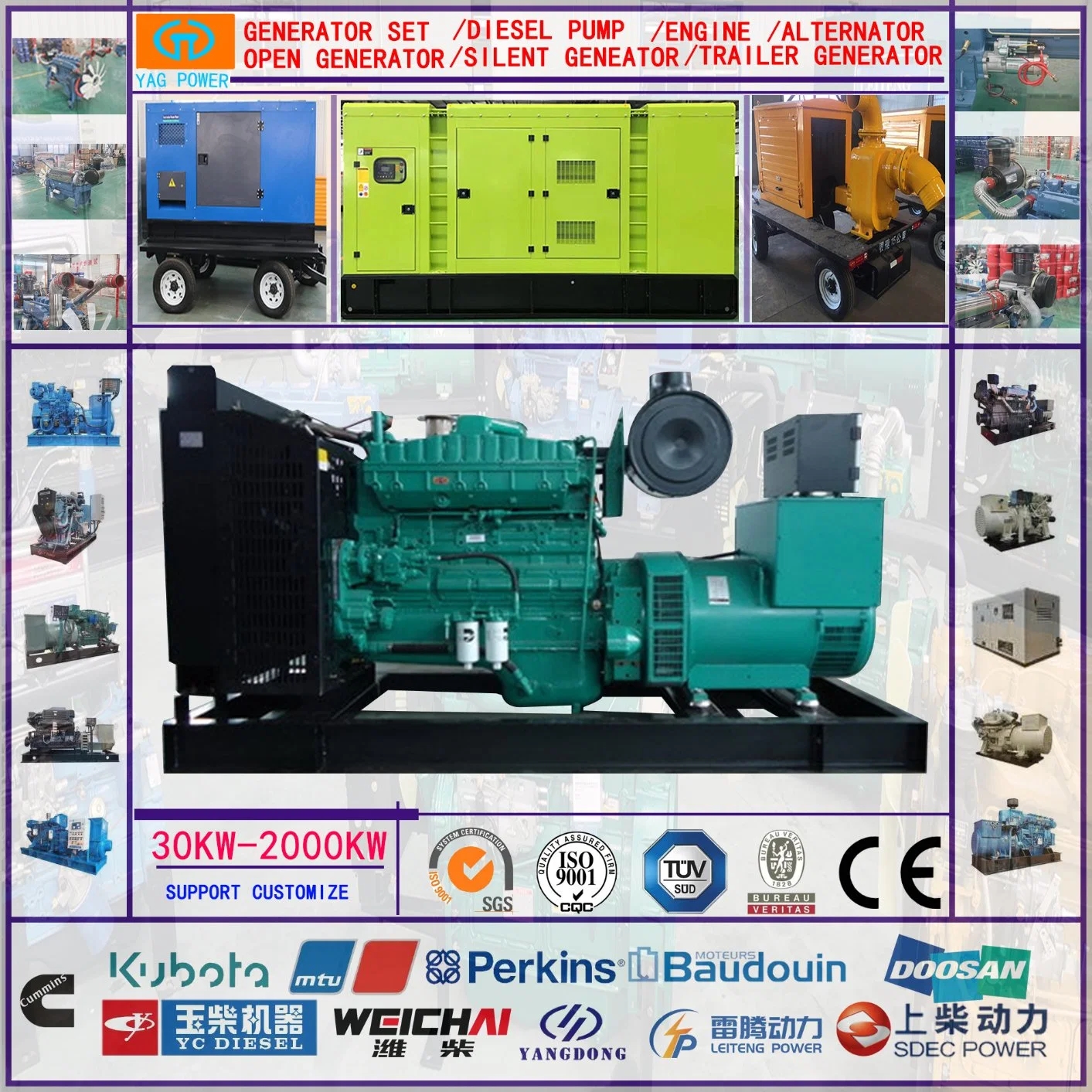Introduction
In today's interconnected world, mission-critical applications play a vital role in various industries, including healthcare, telecommunications, data centers, and emergency services. These applications require uninterrupted power supply to ensure continuous operation and prevent disruptions that could lead to significant financial losses or even endanger lives.
Diesel generators have long been a trusted and essential power source for mission-critical applications due to their reliability, durability, and ability to provide backup power during emergencies. In this article, we will explore the importance of diesel generators in mission-critical applications, their key features and benefits, as well as best practices for their installation and maintenance.
Importance of Diesel Generators in Mission-Critical Applications
Mission-critical applications encompass a wide range of essential services and operations that rely heavily on continuous power supply to function effectively. Hospitals, for example, require uninterrupted power to operate life-saving medical equipment, maintain critical patient records, and ensure the comfort and safety of patients. Telecommunications networks need reliable power to keep communication channels open during emergencies and disasters. Data centers must maintain uptime to prevent data loss and ensure the smooth operation of online services.
In all these scenarios and more, diesel generators serve as a reliable and efficient solution for providing backup power when the main power source fails. Their ability to start up quickly, deliver high power output, and run for extended periods makes them ideal for supporting mission-critical operations during power outages or other emergencies.

Key Features and Benefits of Diesel Generators
1. Reliability: Diesel generators are known for their robustness and reliability, making them a popular choice for mission-critical applications where downtime is not an option. These generators can start up quickly and provide stable power output within seconds of a power outage, ensuring seamless continuity of operations.
2. Fuel Efficiency: Diesel generators are more fuel-efficient than their gasoline counterparts, making them a cost-effective choice for long-duration backup power needs. The high energy density of diesel fuel allows diesel generators to run for extended periods without frequent refueling, making them suitable for mission-critical applications that require uninterrupted power for hours or even days.
3. Durability: Diesel generators are built to withstand harsh operating conditions and heavy usage, making them a durable and long-lasting power source for mission-critical applications. Their sturdy construction and high-quality components ensure reliable performance even in challenging environments.
4. High Power Output: Diesel generators are capable of delivering high power output, making them suitable for powering a wide range of mission-critical equipment and systems. Whether it's supporting critical medical devices in a hospital or maintaining the operation of a large data center, diesel generators can meet the power demands of various applications.
5. Scalability: Diesel generators come in a wide range of sizes and power capacities, allowing for scalability to meet the specific power requirements of different mission-critical applications. Whether it's a small portable generator for temporary power needs or a large standby generator for continuous backup power, diesel generators offer flexibility and customization options to suit diverse needs.
Best Practices for Diesel Generator Installation and Maintenance
While diesel generators are known for their reliability and durability, proper installation and maintenance are essential to ensure optimal performance and longevity. Here are some best practices for installing and maintaining diesel generators in mission-critical applications:
1. Site Selection: Choose a well-ventilated and dry location for installing the diesel generator to prevent overheating and moisture damage. Ensure that the site is easily accessible for maintenance and refueling operations.
2. Regular Inspections: Conduct routine inspections of the diesel generator to check for any signs of wear, damage, or leaks. Inspect the fuel, oil, and coolant levels regularly and top up as needed to ensure proper operation.
3. Scheduled Maintenance: Follow the manufacturer's recommended maintenance schedule for the diesel generator, including oil changes, filter replacements, and overall system checks. Regular maintenance helps prevent unexpected breakdowns and ensures the generator's reliability during emergencies.
4. Load Testing: Periodically test the diesel generator under load conditions to verify its ability to deliver the required power output. Load testing helps identify any potential issues and ensures that the generator can handle the power demands of mission-critical applications.
5. Fuel Management: Proper fuel management is crucial for the reliable operation of diesel generators. Store fuel in clean and secure containers, monitor fuel levels regularly, and ensure that the fuel is free from contamination to prevent engine damage.
6. Emergency Preparedness: Develop a comprehensive emergency response plan that outlines the procedures for activating the diesel generator during power outages or other emergencies. Train personnel on how to operate the generator safely and effectively in critical situations.
Conclusion
Diesel generators play a crucial role in powering mission-critical applications across various industries, providing reliable backup power to ensure continuous operation and prevent disruptions. 300kw diesel generator for remote environmental projects as reliability, fuel efficiency, durability, high power output, and scalability make them an ideal choice for supporting critical operations during emergencies.
By following best practices for installation and maintenance, diesel generators can deliver the dependable and uninterrupted power supply needed for mission-critical applications to function effectively. With proper planning and proactive management, diesel generators can help organizations maintain resilience and reliability in the face of unexpected power outages and emergencies.
